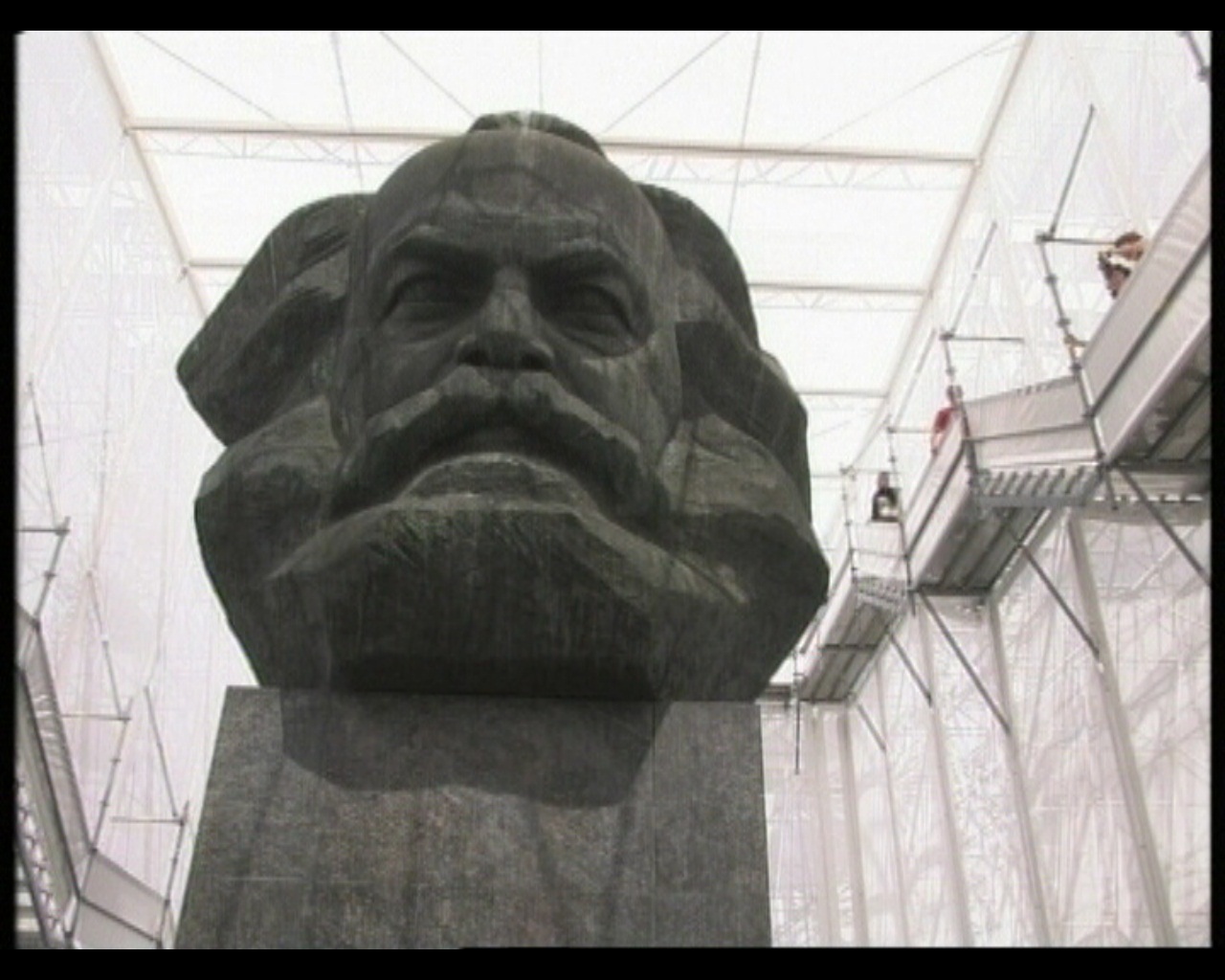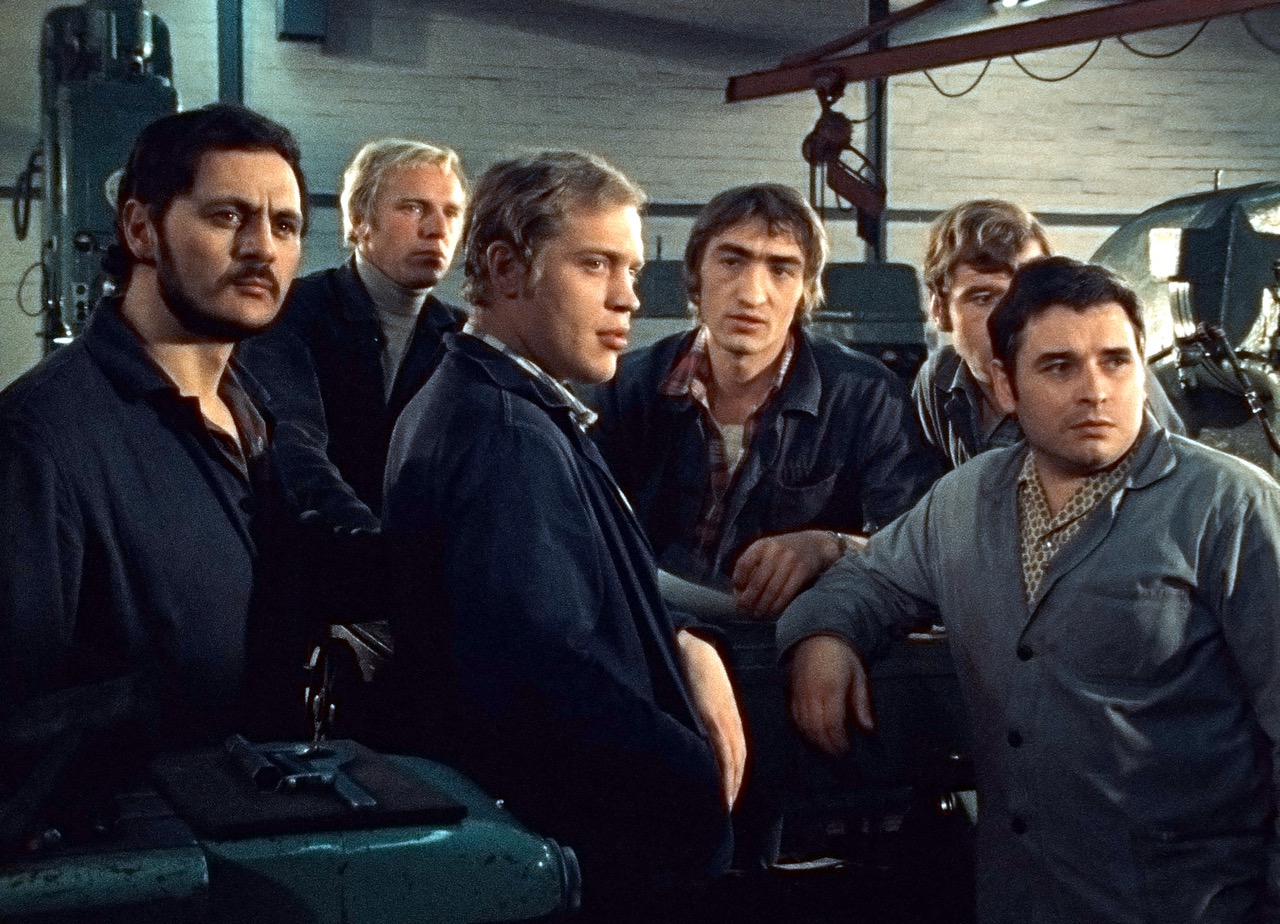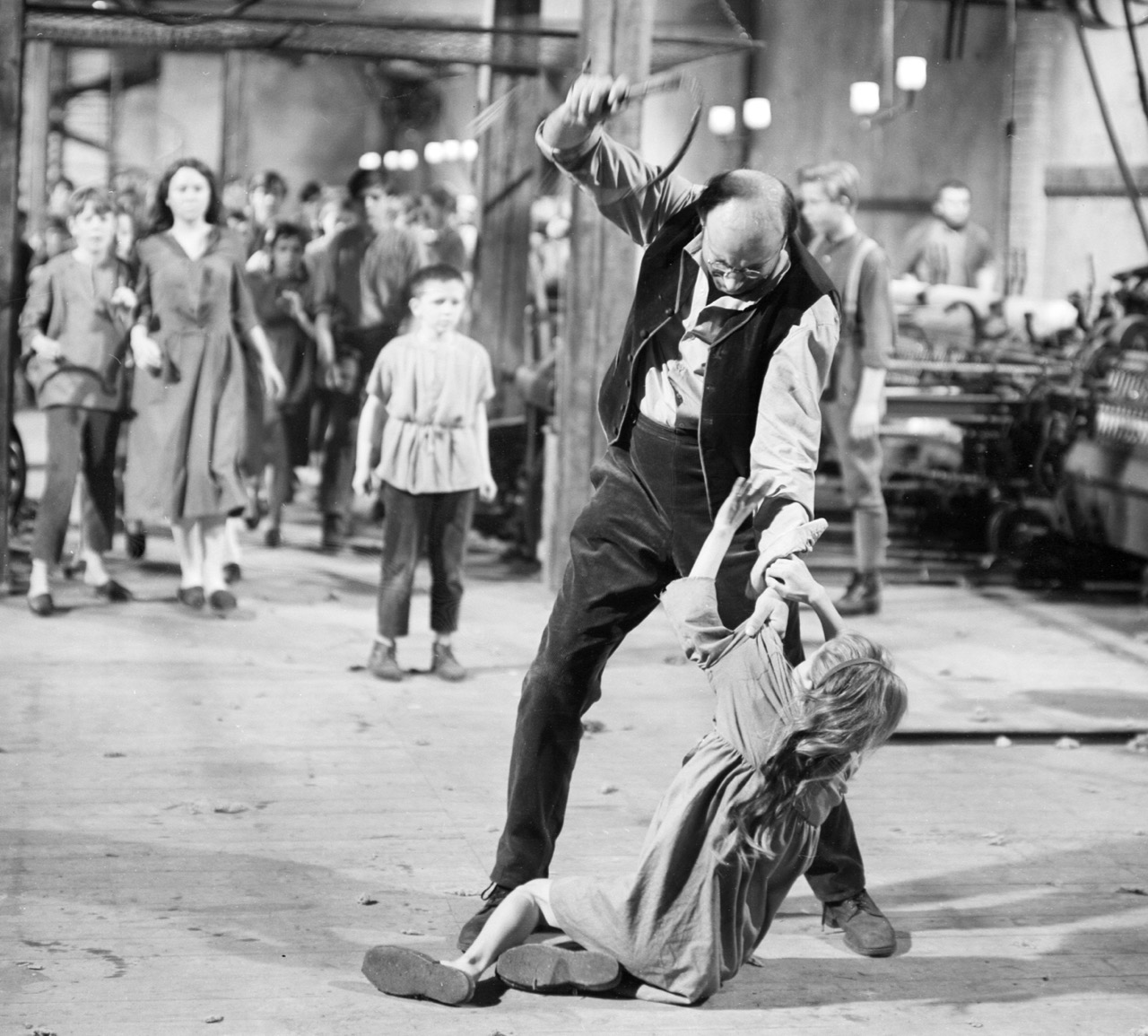 4 Columns
4 Columns
We’ll be back with a new issue next week! In the meanwhile, enjoy our last missive of the summer.

News from Ideological Antiquity: Marx–Eisenstein–Capital. Image courtesy Alexander Kluge.
Workers of the world, awaken, unite—and rest. Labor Day became an official federal holiday in the US in 1894, the result of efforts by the country’s trade unionists. To honor that legacy and to celebrate recent union victories, like that at MoMA, where a contract was reached after months of negotiations, we look back on two moving-image works: the first celebrating worker solidarity, the other highlighting its necessity.

Eight Hours Don’t Make a Day.
Receiving its US premiere theatrical run in March, the proletariat paean Eight Hours Don’t Make a Day (1972) was the first of several TV miniseries by the prolific New German Cinema godhead Rainer Werner Fassbinder. It may also be the director’s most compassionate and optimistic work, as 4Columns film editor Melissa Anderson noted in her review. Fassbinder’s aim in the multipart drama, which centers on an employee at a tool factory named Jochen, was to upend “what people usually expect workers to be,” as RWF himself explained. Jochen and his colleagues, Anderson wrote, “aren’t doomed to abysmal lives: they are unalienated, committed to group action on the factory floor and to maintaining strong bonds with kin, lovers, and friends after punching out.”

Moor and the Ravens of London. Image courtesy Anthology Film Archives.
Sukhdev Sandhu, in his overview of “Karl Marx on Film,” a series mounted at New York’s Anthology Film Archives in May, called Helmut Dziuba’s Moor and the Ravens of London (1968) “the major revelation” of the retrospective. One of dozens of features made for kids by the East German state film studio DEFA, Dziuba’s project is set in 1856. Marx, then living in exile in the British city, meets thirteen-year-old Joe, who endures, along with hundreds of other children, grueling twelve-hour shifts at a spinning mill. “This is Capital reimagined as folk horror or Victorian Gothic,” Sandhu observed. The horror is still with us. The factory’s “working conditions—going to the restroom without permission is a fireable offense—invite comparison with the punitive regimes inside today’s Amazon warehouses.”